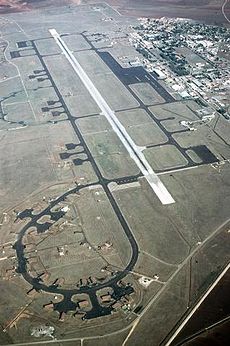Nuclear Weapons 702 - The U.S. Has Fifty Nuclear Bombs In Turkey - Part 2 of 2 Parts
Incirlik_Air_Base_overhead_1987.jpg

Part 2 of 2 Parts (Please read Part 1 first)
Jeffrey Lewis is a non-proliferation expert at the Middlebury Institute of International Studies. He said, “The US doesn’t need Turkey’s agreement to remove the weapons. The US can do it unilaterally, and I think the US should do it unilaterally and do it immediately. If people are really concerned that this is going to somehow be the final nail in the coffin, it’s kind of silly as the coffin is firmly nailed shut. The relationship is in total freefall.”
Vipin Narang is a nuclear expert and pollical scientist at the Massachusetts Institute of Technology. He says that removal of the B61s from Turkey will not be simple or easy. He added that, “Extracting them under these circumstances may be incredibly risky since it would involve removing 50 nuclear weapons from the vaults, moving them on a Turkish base and flying them out of Turkish airspace. They could be vulnerable to accidents, theft or attack.”
As the incursion of Turkey into norther eastern Syria progressed, it placed increasing strain on the membership of Turkey in NATO. Earlier this week, the foreign ministers of European Union nations decided to stop selling arms to Turkey as France and Germany had already done. The E.U. condemned Turkey for undermining “the stability and security of the whole region, resulting in more civilians suffering”.
One major problem with the movement against Turkey in NATO lies in the fact that Turkey signed an agreement to hold three million Syrian refugees in Turkey and prevent them from moving on into Europe. Turkey intends to clear out a buffer zone on the Syrian border and repatriate the three million refugees there.
In the past few days, the discussions about removing the B61s has taken on increased urgency. A senior U.S. official has said that he believes that the B61s in Turkey have become hostages for President Erdogan. He went to say that if the U.S. flew the B61s out of Turkey, that would signal the end of the Turkish-American alliance.
It is not clear whether or not the Turks would attempt to prevent the removal of the B61s from Incirlik. It is not realistic to think that planners in the Pentagon have not drafted plans to remove the B61s by force if necessary. They cannot be left in the hands of Turkey as the U.S. relationship with Turkey continues to deteriorate. A fire fight over the B61s at Incirlik between the U.S. and Turkey would not be beneficial for either party.
Turkey has been a useful ally for the U.S. in dealing with the conflict in Syria. On the other hand, there have been reports of Turkey helping ISIS fighters get to Syria and Turkey buying stolen oil from ISIS. The current situation in Syria is very complex with alliances forming and dissolving almost daily among many different players with many different agendas. The B61s now in Turkey must come home to the U.S. as soon as possible.
Incirlik airbase in Turkey: